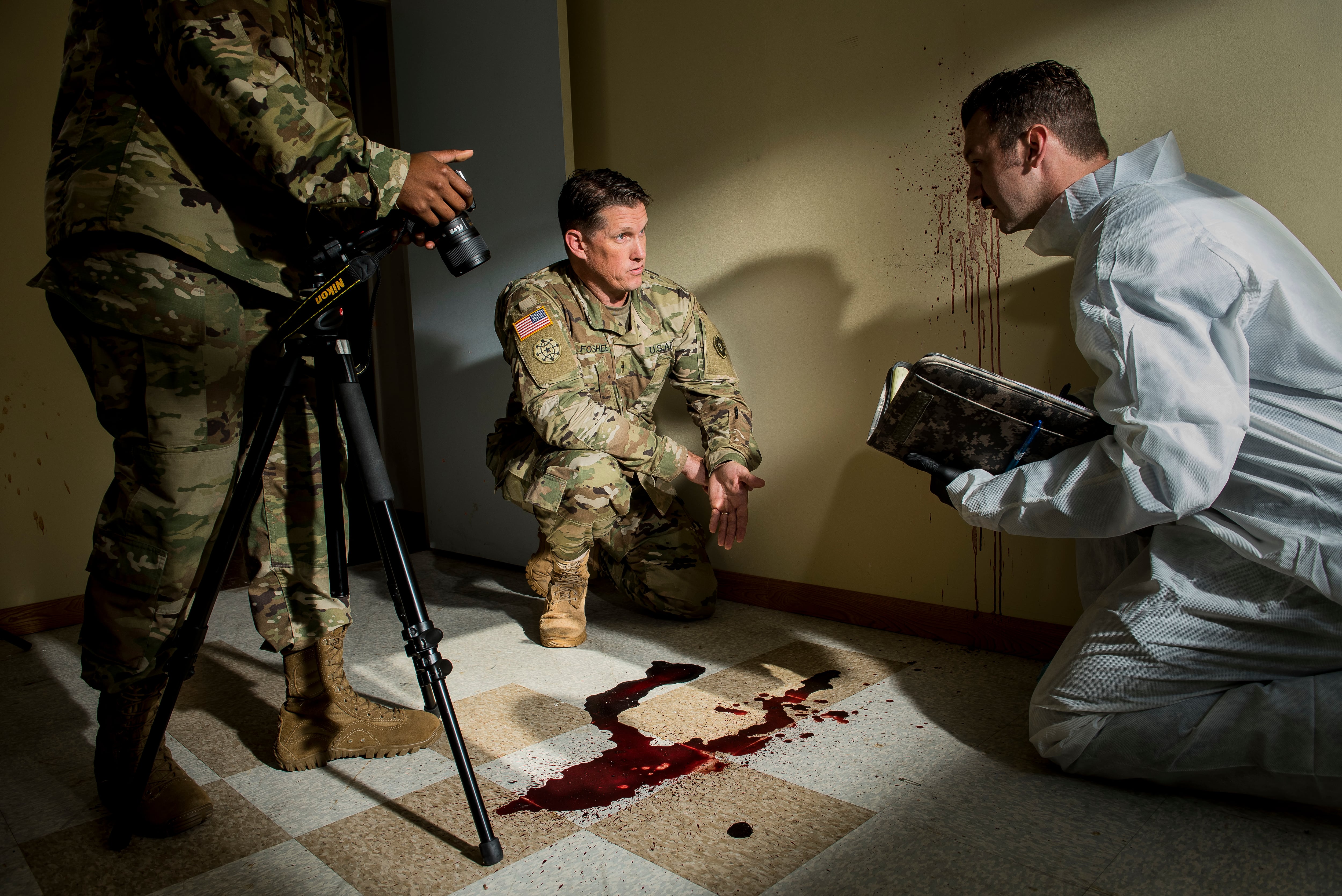Provost Marshal General of the Army Donna Martin has earned a third star and will become the service’s inspector general after a tumultuous year leading Criminal Investigation Command, or CID.
The soon-to-be lieutenant general exits her old role at a time when CID is being overhauled due to poorly handled criminal cases.
Although she didn’t create those problems, which have been around for years, CID personnel with whom Army Times has spoken for previous articles faulted her and other leaders at the organization for not tackling the pervasive issues until pressured by outside authorities.
“Unfortunately, these same people who ran CID into the ground got a pass from the Army [and] promoted,” said one special agent who, like half-a-dozen others this year, spoke on condition of anonymity because they are not authorized to talk to the press.
However, Army spokeswoman Col. Cathy Wilkinson listed CID’s ongoing restructuring among the strong points on Martin’s resume.
“Maj. Gen. Martin led CID through a restructure plan and oversaw its support to the Capitol Response mission where in four days, CID vetted more than 26,000 service members for that important mission,” Wilkinson said in a prepared statement. “Under her leadership, CID initiated almost 13,000 investigations, returned more than $450 million dollars to the U.S. Treasury from procurement fraud investigations, and increased cooperation with federal and local law enforcement partners.”
“Maj. Gen. Martin is trusted leader with deep experience in the most sensitive issues facing our Army today,” Wilkinson added.
Secretary of the Army Christine Wormuth also defended the decision to elevate Martin to the inspector general post, citing her “proven leadership in challenging times.”
RELATED

Martin’s “law enforcement and Inspector General investigative background, and her compassion make her an excellent choice to serve as the Army’s Inspector General,” Wormuth said in a statement to Army Times.
Martin’s promotion to lieutenant general was confirmed by the Senate on July 29 and she relinquished command of CID late last week.
Martin was dual-hatted in her old role, leading both CID and the military police corps. But unlike the criminal investigative arms of the Air Force and Navy, she and other military police officers in CID are not criminal investigators.
That has been a source of friction for the more than half-a-dozen agents with whom Army Times has spoken this year. Those agents have said that CID is mismanaged by military police officers who focus too much energy on soldiering skills and Army tasks, rather than investigative training and acquiring crime-solving resources.
During a tense exchange in Congress this March, Rep. Jackie Speier, D-Calif., made note of the odd leadership dynamic.
Speier, who chairs the House Armed Services subcommittee on military personnel, also said she was “truly disappointed” in the lack of improvements that CID leaders had “gleaned” from a 152-page report on Fort Hood that was compiled by an independent committee and released Dec. 8.
RELATED

The committee found that CID agents assigned to the central Texas post were inexperienced and overworked, leading to missteps during the high-profile search for slain soldier Spc. Vanessa Guillen, as well as other lesser-known cases.
Fort Hood’s CID detachment was “basically being used as a training ground,” Chris Swecker, a former FBI inspector who served on the committee, said in December. “They had a difficult time, and it’s not their fault.”
Not long after the March congressional hearing, the Army decided to overhaul CID, putting a high-ranking civilian director in charge, ending the use of agents as body guards for senior Army leaders, and creating a career field for officer special agents. Previously, CID agents could be enlisted, warrants or civilians, but military police officers largely ran the organization.
The issues found at Fort Hood’s CID detachment weren’t limited to that installation, special agents later told Army Times, and restructuring the organization that Martin is now exiting has been overdue.
Martin has been replaced in her role as the provost marshal general by Brig. Gen. Duane Miller. The high-ranking civilian director who will eventually take control of CID has yet to be announced.
Kyle Rempfer was an editor and reporter who has covered combat operations, criminal cases, foreign military assistance and training accidents. Before entering journalism, Kyle served in U.S. Air Force Special Tactics and deployed in 2014 to Paktika Province, Afghanistan, and Baghdad, Iraq.





